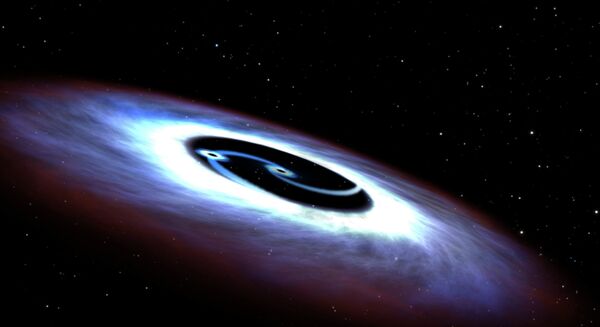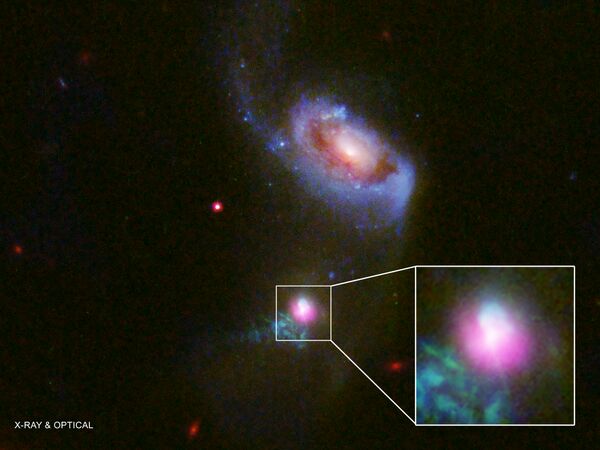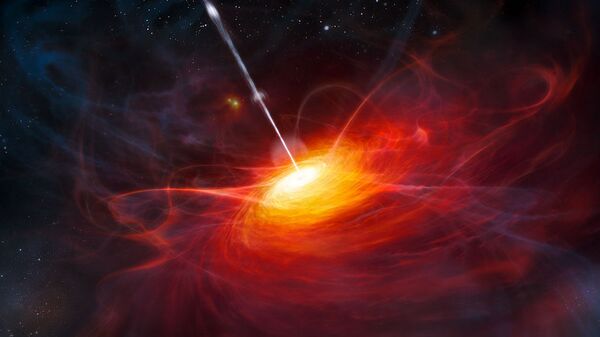Some of the most “energetic” objects of the universe are likely preventing the biggest galaxies from bulking up even more, according to new research.
Quasars – extremely bright quasi-stellar objects powered by black holes a billion times as massive as our Sun – have fascinated astronomers since their discovery half a century ago.
In a spate of six studies that were published on 16 March in a special edition of The Astrophysical Journal Supplement Series, astronomers state the case that the very same radiation that is emitted by the voracious objects as they swallow matter may be ripping apart their host galaxies.

The team observed 13 quasar outflows - high-speed radiation gusts emitted by distant quasars - via NASA's Hubble Space Telescope.
In research that spanned a number of years and in diverse wavelengths of the electromagnetic spectrum, it was concluded that wind and gas pouring forth from a quasar can accelerate to a speed of over 40 million mph (64 million km/h) while the temperature heats up to billions of degrees.
In one such case study that spanned three years, an outflow gathered velocity from nearly 43 million mph (69 million km/h) to about 46 million mph (74 million km/h). This was reported to be the fastest-accelerating wind ever detected in space, according to the study.
Such an outflow from a quasar can create a great deal of damage to its host galaxy, say the researchers, ravaging the galaxy's disk “like a tsunami”, with potential star-forming material blasted out deep into space.
Just one quasar outflow can push out hundreds of such star “building blocks” into intergalactic space, claims the study, preventing new stars from being formed.
What renders the new findings so important is their potential to unravel a mystery about our universe.

The question why large galaxies seem to suddenly stop expanding and growing more after a certain point has been puzzling scientists.
Once the data on quasar outflow from the new research was used on models of galaxy formation, it revealed that the gales of radiation might be stunting the formation of new stars in large galaxies.
"Theoreticians and observers have known for decades that there is some physical process that shuts off star formation in massive galaxies, but the nature of that process has been a mystery," said Jeremiah P. Ostriker, an astrophysicist at Columbia University in New York and Princeton University in New Jersey, who was not part of the study team.
The scientist added:
"Putting the observed outflows into our simulations solves these outstanding problems in galactic evolution."
The team of experts are hopeful that further study of these quasar outflows will speed up, shedding more light on how the universe's most “energetic” objects wield so much power over entire galaxies.




